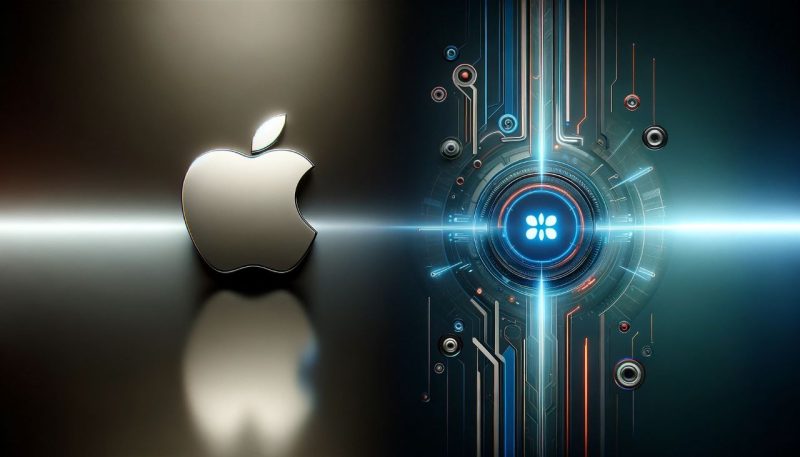
In a significant move set to redefine the landscape of artificial intelligence in consumer technology, Apple is finalizing a partnership with OpenAI to integrate ChatGPT into its iOS 18 operating system.
This collaboration aims to enhance Apple’s AI capabilities across its product range, including iPhones, iPads, and possibly other devices.
The Partnership’s Key Details
Apple’s integration of OpenAI’s ChatGPT is poised to be a pivotal feature in the upcoming iOS 18, which is expected to be announced at Apple’s Worldwide Developers Conference (WWDC) in June 2024. The agreement, while not yet publicly disclosed, will likely see ChatGPT powering new AI-driven functionalities within Apple’s ecosystem, particularly enhancing the capabilities of Siri, Apple’s digital assistant.
The deal is seen as a short- to medium-term strategy for Apple, allowing the company to quickly elevate its AI offerings while continuing to develop its own AI technologies. Siri’s co-founder, Dag Kittlaus, suggests that this partnership might be a temporary measure as Apple works on improving its in-house AI competencies.
Strategic Implications for Apple
Apple’s foray into integrating generative AI comes after a period of lagging behind competitors like Google and Amazon in the AI space. Despite launching Siri in 2011, Apple’s advancements in AI have not kept pace with the rapid developments seen in technologies like OpenAI’s ChatGPT. The introduction of ChatGPT in November 2022 marked a significant shift, pushing Apple to seek external expertise to catch up.
By leveraging OpenAI’s advanced chatbot capabilities, Apple aims to offer a more intelligent and interactive user experience. This move aligns with Apple’s broader strategy of integrating hardware, software, and services seamlessly, providing a competitive edge in the AI market. CEO Tim Cook has emphasized that Apple will introduce AI in a “very thoughtful basis,” ensuring it complements Apple’s commitment to user privacy and data security.
Technical and Privacy Considerations
One of the notable aspects of this partnership is how AI processing will be handled. Apple plans to run some AI features on its own in-house chips within data centers, while other functionalities will be cloud-based, leveraging OpenAI’s robust server infrastructure. This hybrid approach aims to balance performance and privacy, a key concern for Apple and its users.
Apple’s in-house efforts include developing its own chatbot, internally referred to as “Apple GPT,” which has been in testing for over a year. This chatbot is designed to run on-device, ensuring maximum privacy by processing data locally rather than relying solely on cloud-based servers. However, the current capabilities of Apple’s AI are not yet on par with ChatGPT, necessitating this interim partnership.
Market and Consumer Impact
This partnership is crucial for Apple as it seeks to revitalize its AI offerings and maintain its competitive edge in a market increasingly driven by AI innovations. The integration of ChatGPT is expected to introduce advanced features like improved voice memo transcriptions, photo editing, and smarter search capabilities within Safari. Additionally, AI-driven auto-replies in messaging apps will enhance user convenience and efficiency.
For consumers, the collaboration promises a significant upgrade to the functionality of their Apple devices. Enhanced AI features will provide more intuitive and responsive interactions, making everyday tasks easier and more efficient. However, users will need to opt-in to use these generative AI features, which will initially be labeled as beta to manage expectations and mitigate potential issues.
Looking Ahead
The partnership between Apple and OpenAI marks a significant step forward in bringing cutting-edge AI capabilities to Apple products. While it addresses immediate gaps in Apple’s AI offerings, it also sets the stage for more advanced, privacy-focused AI solutions in the future. As Apple continues to innovate and refine its AI strategies, users can look forward to more intelligent, seamless, and secure digital experiences.
This collaboration underscores the rapidly evolving nature of AI in consumer technology and highlights the importance of strategic partnerships in driving innovation and maintaining competitive advantage.
